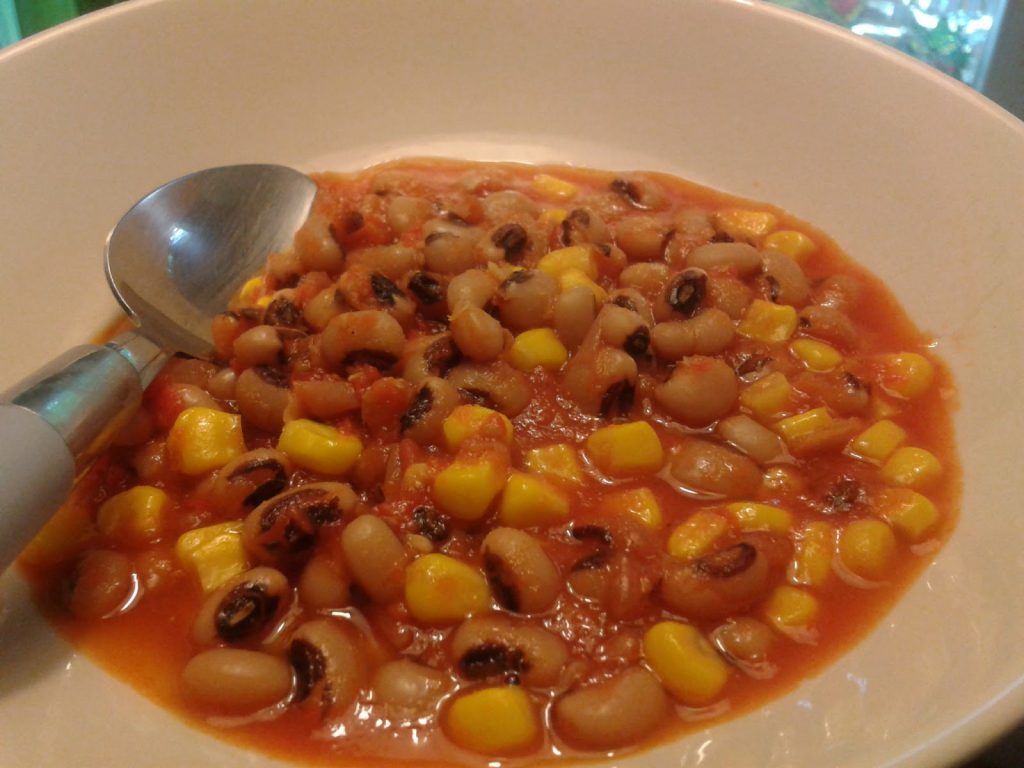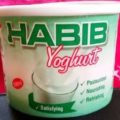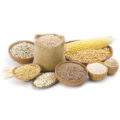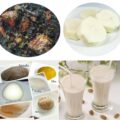Protein is an important component of every cell in the body. Hair and nails are mostly made of protein. Your body uses protein to build and repair tissues. You also use protein to make enzymes, hormones, and other body chemicals. Protein is an important building block of bones, muscles, cartilage, skin, and blood. Protein can be categorized into two types: complete and incomplete proteins. Proteins are made up of smaller units, called amino acids. Complete proteins contains all of the amino acids your body needs and include meat, fish, poultry, dairy, and soy products. For the most part, animal protein is complete and plant protein is incomplete, though there are some exceptions. “The general rule is that animal foods—beef, chicken, fish, turkey, pork, and dairy—are complete, while plant foods—nuts, seeds, rice, beans, and grains are incomplete.”
What are the primary functions of dietary protein?
They do most of the work in cells and are required for the structure, function, and regulation of the body’s tissues and organs. Proteins are made up of hundreds or thousands of smaller units called amino acids, which are attached to one another in long chains. Here are four good reasons why your Nigerian food should be rich in proteins:
It is a component of every cell in your body. In fact, hair and nails are mostly made of protein.
Your body uses it to build and repair tissue.
You need it to make enzymes, hormones, and other body chemicals.
It is an important building block of bones, muscles, cartilage, skin, and blood.
The List Of Best Protein foods in Nigeria and their functions
Soya beans
The soybean or soya bean is a specie of legume native to East Asia, widely grown for its edible bean, which has numerous uses. Traditional unfermented food uses of soybeans include soy milk, from which tofu and tofu skin are made. Soybean grows well in the middle belt areas in Nigeria, Benue state accounts for 70% of the total production in Nigeria. Other states that can grow soybean in Nigeria include Kogi, Oyo, Ondo, Osun, Nassarawa, kaduna, Niger, Bauchi, Taraba, Ogun, FCT, Jigawa, Lagos, Plateau, Ekiti, Enugu, Abia and Adamawa. It is a very good source of protein, B vitamins and minerals. Tofu – also known as bean curd is made from soya milk by coagulating the soya proteins with calcium or magnesium salts. The whey is discarded and the curds are processed. It is an excellent source of iron and calcium and a good source of protein which has the potential of alleviating the malnutrition problem in Nigeria.
low-fat milk and yogurt
Casein and whey are the two types of protein found in cow’s milk, making up 80% and 20% of milk protein respectively. They’re high-quality proteins, as they contain all essential amino acids, which you must get from food since your body cannot make them. A cup of low-fat yogurt contains around 14 grams of protein, while full-fat yogurt contains 8.5 grams. Skim milk contains around 8.5 grams of protein per cup and whole milk contains 8 grams of protein per cup, meaning low-fat yogurt is a marginally better choice in terms of protein content. Both are good sources of casein a globular protein, Skim milk also offers the advantage of being a relatively low-calorie source of protein. Both whole milk and skim milk contain around 8 grams of protein per cup.
Egusi (Melon Seed)
Egusi is the name for the fat- and protein-rich seeds of certain cucurbitaceous melon plants, which after being dried and ground are used as a major ingredient in many Nigerian cuisine. Egusi (melon seed) is packed with many vital and beneficial nutrients which are good for the body and these nutrients are not limited to protein, potassium, vitamin B1, sulphur, fats, calcium, magnesium, carbohydrate, zinc, copper, vitamins A, E and C, manganese, dietary fibre and more.
Kpomo or ganda.
Kpomo or ganda is a Fibrous protein, a fibrous protein, is a protein with an elongated shape. Fibrous proteins provide structural support for cells and tissues. There are special types of helices present in two fibrous proteins, α-keratin and collagen. These proteins form long fibers that serve a structural role in the human body. Animal hair and skin provides a good example of how fibrous proteins have structural functions. Example of fibrous protein food in Nigeria is kpomo or ganda.
A cooked forty gram serving of kpomo has zero grams of fat, sugar, protein, fiber, carbs, and only 37 calories. It covers zero percent in iron, calcium, vitamin A, and vitamin C of the Percent Daily Values which are based on a 2000 calorie diet. Kpomo is an excellent protein food for weight loss in Nigeria.
Eggs
Eggs are considered to be one of the best sources of protein available. Around 9 percent of an egg’s content is fat, found almost exclusively in the yolk. Eggs are known for containing cholesterol. They are one of the most commonly consumed animal products in the world. Eggs are a very good source of inexpensive, high quality protein. More than half the protein of an egg is found in the egg white along with vitamin B2 and lower amounts of fat than the yolk. Eggs are rich sources of selenium, vitamin D, B6, B12 and minerals such as zinc, iron and copper. Nigeria produces 10.3 billion eggs annually, which makes the country the largest producer of eggs in Africa, but that this figure is not enough to meet the protein needs of its population of over 200 million people.
Beans
Beans is one of the most popular and staple foods in Africa, especially in Nigeria and the 4th most consumed after cassava, yam, and rice, more of brown beans than black-eyed beans are abundantly cultivated by the majority of farmers in northern parts of Nigeria such as Borno, Gombe, Kano, Sokoto, Yobe and Zamfara. There are two major varieties that are popularly known to people in southwest Nigeria; sweet beans or honey beans (ewa oloyin) and Nigerian brown beans (ewa drum). Beans are nutritional powerhouses packed with protein, fiber, B vitamins, iron, potassium, and are low in fat. Beans are a diabetes sufferer’s superfood! The balance of complex carbohydrates and protein provides a slow, steady source of glucose instead of the sudden surge that can occur after eating simple carbohydrates. Beans also contain a wide range of cancer-fighting plant chemicals, specifically, isoflavones and phytosterols which are associated with reduced cancer risk. All types of beans including its bi-products like moi-moi and akara are all protein and fibre packed. You can choose any form or type of bean you prefer and get at least 20 percent of your needed daily protein in a 1-cup serving. See: Healthy Nigerian Meals Time Table
Beef
Beef is one of the most delicious-tasting proteinous foods on this list. It is also loaded in the nutrient department. According to FAO statistics, there are 19.5 million heads of livestock in Nigeria with the production of about 380 thousand metric tons of meat per year. The number of cattle of Nigeria neighbors more than 36.5 million heads. Beef consumption amounted to 380 000 tons in 2014 and is projected to grow up to 1.3 million tons by 2050. Beef is exceptionally rich in high-quality protein, vitamins, and minerals. Therefore, it may improve muscle growth and maintenance, as well as exercise performance. As a rich source of iron, it may also cut your risk of anemia.
Fresh Fish/ Dry Fish and Sea Food
Fish is among the healthiest foods on the planet. It’s loaded with important nutrients, such as protein and vitamin D. Fish is also a great source of omega-3 fatty acids, which are incredibly important for your body and brain. Nigeria’s total annual fish demand is estimated at 2.7 million metric tonnes (mmt). Nigeria’s per capita fish consumption is 11kg; this is significantly lower than the global average of 21kg and just less than the estimate of 13.5kg for Côte d’Ivoire. Fish is a low-fat high quality protein. Fish is filled with omega-3 fatty acids and vitamins such as D and B2 (riboflavin). Fish is rich in calcium and phosphorus and a great source of minerals, such as iron, zinc, iodine, magnesium, and potassium.
Sea food like Shrimp and crayfish are not only high in protein but contains a variety of incredible nutrients like omega-3 fatty acids, vitamin B12 and selenium, just to name a few. Seafood is an excellent source of many important minerals, including iodine, zinc, potassium and phosphorus. It is also rich in many vitamins, especially the B group. Omega-3s are a type of polyunsaturated fat and are essential nutrients that play many critical roles in our bodies.
Groundnut(Peanuts)/Peanut butter
Groundnut (AKA peanut) a delicious nut with lots of nutrients including high protein and fibre. One ounce (28 g) of g-nut, with 159 calories has 7 grams of protein. As Peanut butter made from groundnut, it’s also high in protein. Ensure you choose organic peanut butter without added sugar. Peanuts are actually a smart food choice for pregnant women. They contain protein and folate. Folate and folic acid supplements are recommended during pregnancy to help prevent birth defects, particularly of the developing brain and spine. See: Top Basmati Rice Health Benefits





